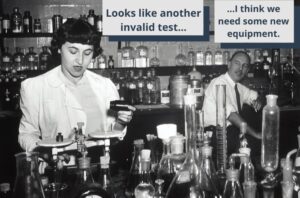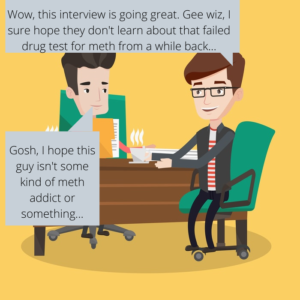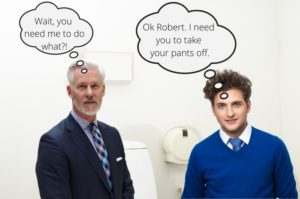In this post, we will compare the DOT vs. non-DOT drug test. We will clarify the key differences in DOT and non-DOT drug and alcohol testing policy and process. Also, we will run through the procedure, policy, and rule differences for the DOT vs. non-DOT drug test. Read this article indacloud if you want to know whether or not delta-9 shows up in urine tests.
DOT Drug Test Meaning/Definition
A DOT drug (or alcohol) test is a test done under DOT authority on a DOT-regulated employee, meaning that person is a safety-sensitive employee.
Conversely, a non-DOT drug or alcohol test is typically done under an employer’s authority. The employer can decide which employees they want to test; they do not have to perform particular duties to qualify.
However, some employer’s may do non-DOT testing in order to qualify as a drug-free workplace, which often provides fiscal benefit to the company. In this case, the state typically has regulations that employers must meet to qualify, and depending on the state, some of those regulations may include that employees with certain roles be included in the testing program.
Then for organisations requiring specialised environments, mobile laboratory units offer a convenient and compliant solution. The portable cleanroom facilities equipped to meet CGMP standards are a testament to innovation in controlled environments. Additionally, it’s important to meet the sterile processing technician license requirements by state as these are the backbone of surgical and medical care with the important task of ensuring that every tool, piece of equipment, and surface is ready for medical care in a sterile environment. Certification means more salary potential, so it’s important to meet these requirements.
DOT Vs. Non-DOT Drug and Alcohol Testing Policy
Substance use in transportation industries is a danger in the workplace. But that workplace happens to include everyday citizens on the road (or whatever relevant mode of transportation is in discussion). Because it involves the safety of the public, these companies must follow federal rules for their drug testing programs. These rules make up DOT drug testing.
Non-DOT drug and alcohol testing, on the other hand, usually follows state-level regulations on a drug-free workplace program. These rules vary from one state to another. So unlike DOT drug tests, non-DOT drug tests can vary wildly in the specimens collected, the procedures for testing, the forms used, the scope of the program, the cutoffs for violations, and the consequences for violations.
DOT drug and alcohol testing rules start with 49 CFR Part 40, a document detailing the procedures and processes for DOT drug and alcohol testing. These rules apply to all DOT administrative agencies:
- Federal Motor Carrier Safety Administration (FMCSA)
- Federal Aviation Administration (FAA)
- Federal Railroad (FRA)
- Federal Transit Authority (FTA)
- U.S. Coast Guard (USCG)
- Pipeline and Hazardous Materials Safety Administration (PHMSA)
Each agency has its own regulatory document(s) specific to its needs:
- FMCSA: 49 CFR Part 382
- FAA: 14 CFR Part 120
- FRA: 49 CFR Part 219
- USCG: 46 CFR Part 4, 46 CFR Part 16, 33 CFR Part 95
- FTA: 49 CFR Part 655
- PHMSA: 49 CFR Part 199
Scope of Testing
For DOT drug and alcohol tests, only safety-sensitive employees participate.
For non-DOT testing, though, employers can decide who they want to test. Of course, their respective state’s drug-free workplace program regulations may affect who they choose to test.
Types of Specimens Used
In DOT testing, urine specimens are almost always used.
In non-DOT testing, they may use urine, but they may also use hair or saliva. It depends on the drug-free workplace regulations in the state as well as the employer’s discretion.
The Forms Used In DOT Vs. Non-DOT Testing
The forms differ when comparing DOT vs. non-DOT drug testing. In DOT testing, they always use a form called the Federal Drug Testing Control and Custody Form, or CCF.
In non-DOT testing, the form used is up to the state, the employer, or even the drug testing company the employer hires.
These forms are not interchangeable. You cannot use a non-DOT testing form for a DOT drug or alcohol screen, and you cannot use a CCF for a non-DOT test.
Prohibited and Required Conduct
DOT safety-sensitive employees are required to submit to testing in the following situations:
- Pre-employment testing
- Random testing
- Post-accident testing
- Reasonable suspicion testing
- Return-to-duty testing
- Follow-up testing
They are prohibited from adulterating or substituting their specimen. An example of adulteration would be trying to get a cancelled test by putting soap in your specimen. An example of substitution would be replacing or diluting your urine with another substance.
If a safety-sensitive employee either refuses to test or fails a DOT test, that employee must complete the DOT return-to-duty process before resuming safety-sensitive functions with any employer.
In a non-DOT setting, refusals to test may be treated differently than in a DOT setting, where they are equivalent to a failed test.
Also, employers may have a policy in which employees must go through a certain process before returning to work with them. This is up to individual employers. But there is not necessarily a mandated policy that an employee must go through a certain process before being able to return to work for any employer.
However, in both DOT and non-DOT testing situations, employers reserve the right to terminate upon the failure of a drug or alcohol test. Some may fire you on the first offense, while others may have a “two strikes and you’re out” policy.
The main difference between DOT and non-DOT testing failures is that a DOT safety-sensitive employee must complete the DOT return-to-duty process before being eligible to perform safety-sensitive functions for anyone anywhere. You may get fired for a non-DOT testing failure, and you may have a difficult time finding another gig with that test result, but it does not necessarily legally bar you from getting another job.
The Drugs Tested For in a DOT and Non-DOT Test
A DOT drug test uses a 5-panel test. A 5-panel test screens for the following:
- Marijuana
- Cocaine
- Amphetamines
- Opioids (narcotics)
- PCP
A non-DOT drug test may use a 5-panel test, but they may also use a 10-panel test, which along with the drugs listed above includes benzodiazepines, barbiturates, methadone, propoxyphene, & Quaaludes.
There are several different drug tests available for non-DOT testing, and it is for the employer to determine what they want to test for.
Differences in the Collection Process
The collection process differs for the DOT vs. non-DOT drug test. DOT drug testing has a fairly rigorous and specific collection process designed to prevent the possibility of loopholes. It is made as airtight as possible.
From the collection process to the lab analysis to the MRO verification, there are few ways in which an error can be made. These rules and processes can be found in 49 CFR Part 40.
Non-DOT drug tests may be just as rigorous and infallible as DOT testing, but they do not have to be carried out in the exact same manner every time. With non-DOT drug testing, employers have the leeway to set up their own testing process. They are not subject to DOT regulations in the same way a DOT-regulated company is. There may be state-wide drug-free workplace policies, but those vary from one state to another.
Also, the cutoff levels may differ between DOT and non-DOT testing, though non-DOT drug test cutoff levels are typically just copied from DOT drug testing cutoff levels.
Those who are struggling with addiction may consider checking into a rehab facility. As a premier Malibu rehab facility, Carrara Treatment is known for its luxurious settings and top-tier care. It’s where patients receive exceptional treatment in an idyllic environment. For comprehensive and effective care for addiction recovery, make sure to check out Rehab Thailand.
DOT Vs. Non-DOT Drug Test Conclusion
In general, when comparing DOT vs. non-DOT drug tests, DOT tests are more standardized than non-DOT ones.
The scope of testing, the cutoff levels, the types of tests used, the specimens used, the collection process, and the forms used are consistent with DOT testing, while they may vary from state to state and company to company in non-DOT testing.






